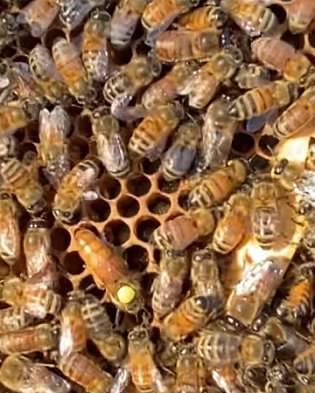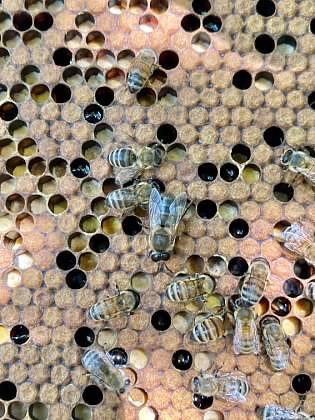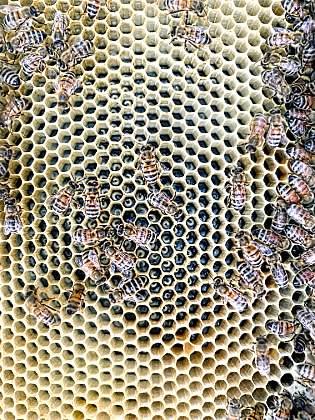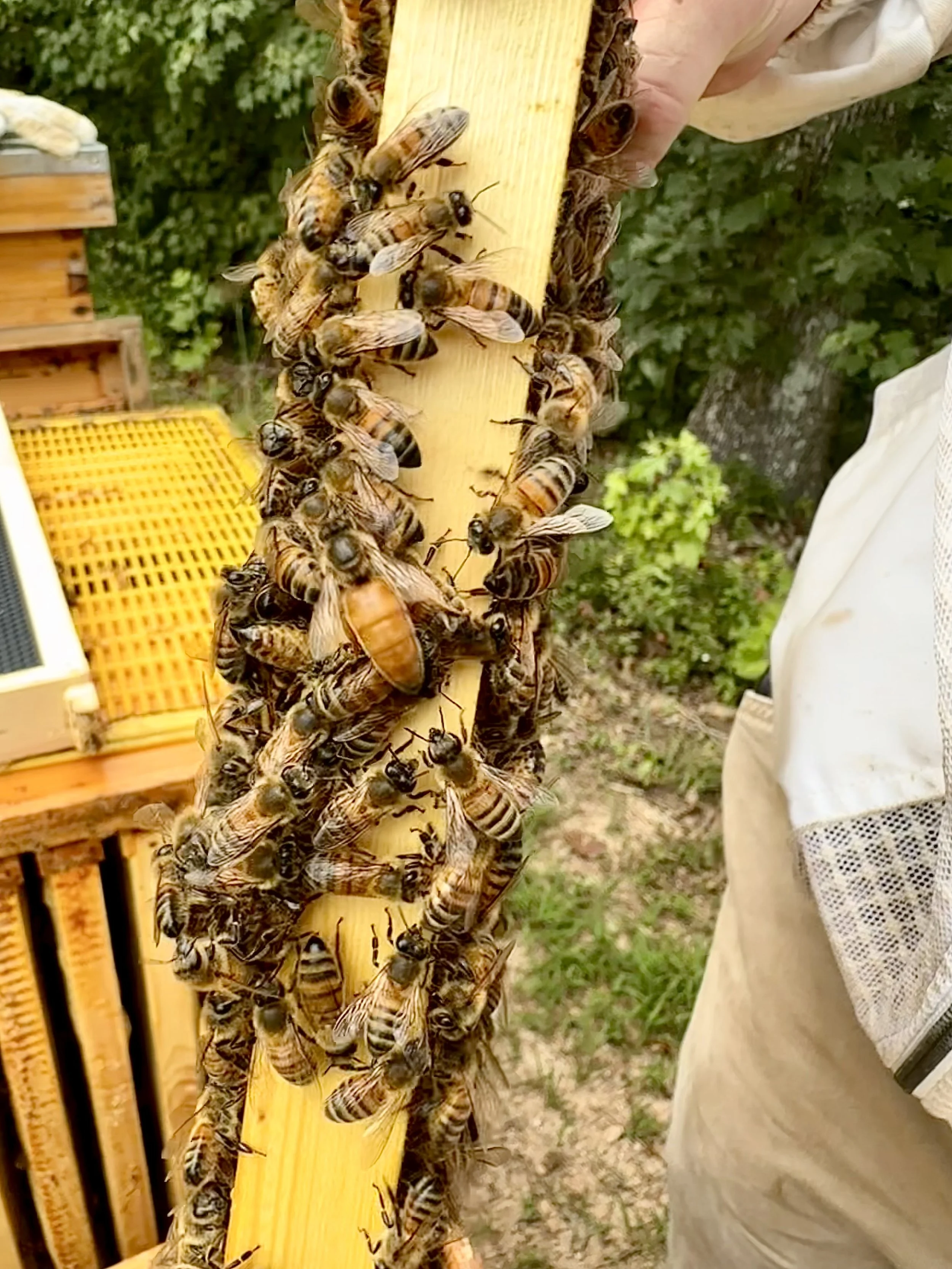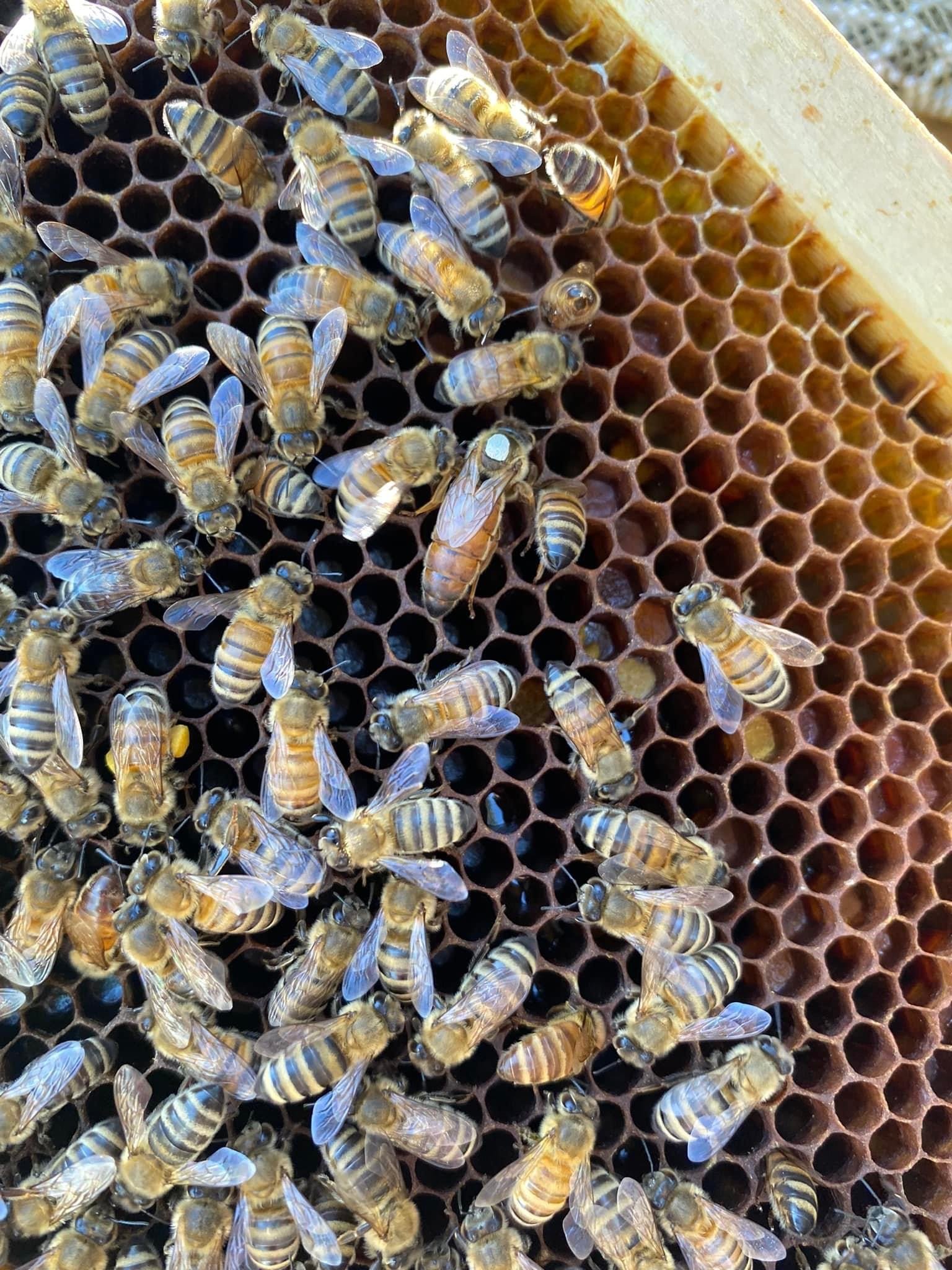
Meet our Honeybees
Respected. Admired. Appreciated. Our honeybees are a great addition to our family! We provide desirable conditions for queens, workers, and drones to thrive.
Safeguarding our bees for strong, preferable genetics is a top priority. Our hives are located on-site, allowing us to care for our bees as they need. With as little disturbance as possible, we maintain our hives year-round with meticulous efficiency.
To ensure the healthiest bee populations possible, we conduct frequent hive inspections to confirm the queen is laying properly, manage space, splits, and swarms, keep varroa mites and hive beetles to a minimum, evaluate food resources, and check on wax and honey production. When the bees experience a natural food shortage due to the dearth or winter, we feed a variety of pollen patties, sugar syrup, and nutrient-rich, pro-biotic fondant as needed.
Healthy bees are happy bees.
This results in a strong population and plentiful honey production.

Makeup of a Colony
Each colony consists of a queen bee, worker bees, and drones. Each bee is responsible for ensuring the success of the population.
Colony
Queen Bee, Worker Bees, Drones
Jobs
The queen is responsible for laying eggs. She can lay up to 2,000 eggs per day. The queen will also decide to lay a male or female egg, based on nature’s needs and mating season.
Worker bees are all female. Honeybees are born as adult bees. Their first job is to clean the cell they emerged from so the queen can reuse it. Throughout a worker bee’s lifetime, the jobs will change. A worker bee tends to the queen as her nurse bee, takes care of the brood, guards the hive entrance to protect the colony and resources, cleans the hive, builds wax, dries out the nectar storage, and finally becomes a foraging bee collecting pollen and nectar. The worker bees work their entire life, only living about 4-6 weeks during the spring/summer months but up to 6 months over the winter.
Drones are male bees. Their only job is to mate with a queen. They do not mate with the queen in their hive. Instead, mature males fly to a drone-congregated area in hopes of a virgin queen visiting. During the Fall, worker bees kick drones out of the hive. The colony reserves winter resources for the worker bees and queen.
Meet the Queens


